I’ve long admired Addison Cooper for the way he makes me think about adoption more expansively, as well as for his helpful posts about adoption movies (really, if you’re considering a movie for/with your kids, check out Adoption at the Movies first).
Addison and I recently teamed up for an interview that will be published in a magazine soon — we’ll point you there when available. In the meantime, I think more people should know Addison and the tools he brings to adoptive parenting, so I’ve asked him to treat readers to a guest post. Below he shares how to use movies to open up conversations about adoption, a technique called “dropping pebbles,” covered by Holly van Gulden and Lisa M. Bartels-Rabb in Real Parents, Real Children: Parenting the Adopted Child and introduced to me by Judy M Miller.
~~~~~
 Hi! My name is Addison. I’m a social worker and therapist in the world of foster care and adoption, and I review movies for foster and adoptive families on my site, Adoption at the Movies. I started the site with the intention of helping foster and adoptive families use film to enter into important conversations about adoption, believing that the movies would be easily-accessible avenues into otherwise hard-to-start conversations.
Hi! My name is Addison. I’m a social worker and therapist in the world of foster care and adoption, and I review movies for foster and adoptive families on my site, Adoption at the Movies. I started the site with the intention of helping foster and adoptive families use film to enter into important conversations about adoption, believing that the movies would be easily-accessible avenues into otherwise hard-to-start conversations.
Many films don’t directly address adoption, but still have relevance to adoption-related issues. For example, in Frozen, Elsa and Anna feel the weight of familial secrecy. In other films, adoption is present but tangential to the main story, such as in the Star Wars series. Luke Skywalker and Princess Leia were each adopted; they reunify later in life prior to Luke’s tumultuous but eventually redemptive reunion with his birth father.
In yet other films, adoption isn’t part of the main plot but it plays a huge role in the story. Despicable Me is about a super-villain changing his ways, but along the way he adopts three sisters from an orphanage. And then there are some films in which adoption is inextricable from the plot, such as The Blind Side.
Movies as Prompters of Adoption Conversations
Movies are helpful to start conversations, but like humans, they’re not blank states. When adoption is part of a film’s storyline, the film does say something about adoption, whether implicitly or explicitly.
Openness in adoption is a topic that’s particularly important to me, and that’s probably part of why I enjoy talking with Lori . I’ve written and trained on openness in adoption, and I’ve enjoyed reading Lori’s book on the same. Openness, or the pain of a closed adoption, or the desire to open a closed relationship — these are all prominent themes in several films. I thought it might be interesting to crystallize what the films below say about openness, or at least, what the each film’s presuppositions are. Some of the messages are healthy, a couple not so much — the point is you should know before you walk into the theater or queue up the movie on your screen.
Adoption Messages in 10 Feature Films
Here are 10 movies and their crystallized adoption messages. Click each link for my full commentary.
1. Admission: “Birth parents never forget their children.”
2. Antwone Fisher: “Finding your birth family can help you understand yourself. The process might be painful at times and wonderful at other times, but it is important.”
3. The Big Wedding: “We keep secrets because we’re ashamed and we fear what others will think of us. But others have issues, too, and might be more understanding than we expect.”
4. Closure: “Opening relationships can provide healing and answers for everyone involved.”
5. Delivery Man: “Even if you aren’t thinking about your birth children, they are thinking about you, and it would be good if you got to know them.”
6. Identity Thief: “We draw direction and identity from our history. Without history, we can feel lost.”
7. Meet the Robinsons: “Leave the past in the past, and look towards the future instead.”
8. Philomena: “Your birth parents have never forgotten you. They still miss you.”
9. Tangled: “Your birth parents have never forgotten you. But your adoptive parent might have kidnapped you.”
10. The Tigger Movie: “Sometimes you want people in your life who aren’t available for some reason. It’s OK to be upset, and you can still find a sense of belonging with the people in your life who love you.”
I often think of openness as involving either contact or the free exchange of information (or both!). Lori wrote about openness as a heartset –- the healthiest adoptive families are those who open to openness. A spirit of openness in the home can make it possible for adoptive parents and their children to talk about emotionally-heavy adoption-related issues. Films can help parents and adoptees access those conversations and can be excellent tools to create a more open atmosphere in your adoption.
What films have you seen that have reminded you or your kids (directly or indirectly) about adoption?
How have those experiences been? I invite you to share any adoption conversations that have been opened between you and your kids due to films.
~~~~~
Addison Cooper, LCSW, is a licensed clinical social worker and the founder of Adoption at the Movies, where he has reviewed over a hundred films for foster and adoptive families. He has also written for Adoptive Families, Foster Focus, Focus on Adoption, Fostering Families Today, The New Social Worker, and Adoption Today magazines. Addison is a supervising social worker for a foster care – adoption agency, and lives in Southern California. Find him on Facebook and on Twitter @AddisonCooper.

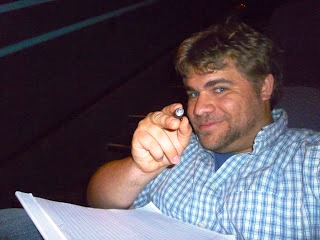
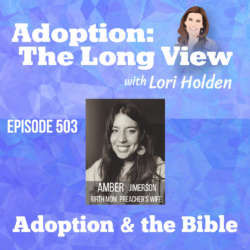
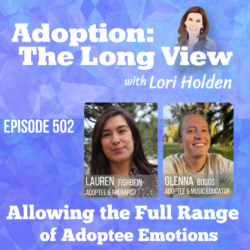
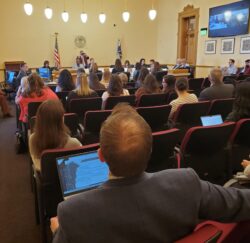
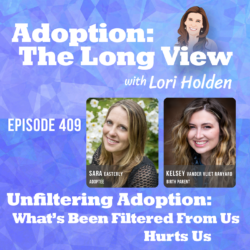
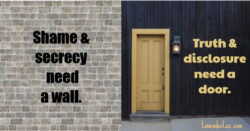
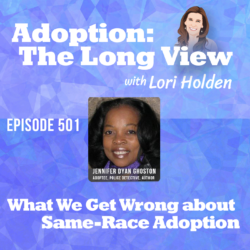
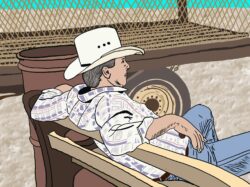
19 Responses
I didn’t know about the adoption theme in despicable me when I watched it in my home with my toddker. However, i was so taken aback at how freely things were thrown around that may impact her feelings of being adopted that I turn it off. I didn’t know that these things would make me feel so strongly one way or another.
Thanks so much for your comment. It can be surprising to see adoption themes where you’re not expecting to see them; and I don’t think it’s necessarily bad – it’s just powerful, and it can be hard to deal with something powerful when you weren’t expecting it!
Recently, I watched Meet the Robinsons with my biological son and realized I couldn’t watch it with my adopted sons yet. If they watched it at their current emotional age, I think they would feel pressure (and guilt) as they remember their first family. I don’t want them to have that pressure coming from anywhere because they don’t seem secure enough to work through many of their feelings about their first family yet. But, my second grade son can say he misses his first mom (and I’m so proud of him for being brave enough to tell me!). [Also, I’ve been noticing many of my favorite children’s books have intense adoption/abandonment themes! Soon, I need a trigger free book list. Matilda will be fun to read together someday. That day is not today.]
Hi Alex! I love that you’re sensitive enough to want to protect the kids you’ve adopted from pressure and guilt that would stop them from developing a holistic understanding of their life story. It’s wonderful that your son trusts you to share what he’s feeling! I do have a list of some adoption-related kids’ books on my site, but they might be more “tools to use to talk about adoption” rather than trigger-free entertainment.
Such a helpful resource. And this line is perfect: “Some of the messages are healthy, a couple not so much — the point is you should know before you walk into the theater or queue up the movie on your screen.” It’s a big reason why I’ve so far skipped Despicable Me with the kids — I read that the message wasn’t entirely healthy.
Thanks so much for your kind words, Mel. By the way – while Despicable Me had some problematic aspects, its sequel, Despicable Me 2 is one of my favorites for its positive portrayal of adoption. Check it out 🙂
While I think Despicable me is a pretty rotten portrayal of adoption in many ways, I think there are some redeeming characteristics. The girls are perfectly capable of handling life on their own and don’t need a rescuer (except in the most extreme and unlikely of circumstances). In the end, love is the reason they all come together – not any of the other misleading desires previously expressed.
When I saw Antwone Fisher, I told Lori about it, because I thought it was such a powerful movie that she would appreciate.
I watched it (and loved it!) at your suggestion. THANK YOU.
Antwone Fisher is pretty powerful! I’m wondering whether you’ve seen Despicable Me 2; I think they did a better job with the sequel!
It isn’t adoption specific, but one the movies my son watched over and over in his orphanage was Coraline. We watched it together and the “other Mother” character really caught me off guard. We talked about it, and he told me he used to worry saying “yes” to adoption would be the same way. He still wonders sometimes if his new life will turn out to be too good to be true. A hard conversation, but an important one at the same time.
Hi! You know, I haven’t seen Coraline, and I really need to fix that problem. Your son sounds like a deep thinker – so often, kids are! Thanks for your comment!
When I was a child there were few shows with the adoption topic. Danny Thomas had an episode that did a great job of placing adoption in a good light that was seldom done in that era. It helped me discuss adoption at school with the other kids. I knew what words to use for them. It didn’t change the way I personally saw adoption, but it helped me get them off my back. Watching adoption shows, whether you consider them good or bad, are all positive discussion topics, because your children will hear BOTH at school. You want them armed, and because you hear them having a positive discussion don’t assume they feel that way. They are word battling a fight. The more ammunition, the more likely they are to stop the negative discussion. That’s your goal for school, sending them in heavily armed. I spent a lot of years teaching public school, and since I was also adopted I was amazed at how little it had changed. Things are not better for adopted kids, it’s different. Some people sadly romanticize adoption and others degrade it. Neither are acceptable or help kids deal with all the emotional highs and lows. As an adoptive parent, be careful not to place your insecurities on your children. You feel very different about adoption than they do. That’s not a guilt trip either.
We went to see Paddington last week; it’s another adoption themed movie. It was adorable. I thought it represented how often we adopted people feel so different from our adoptive families, and we respond to things differently than they do too – different species (DNA). We loved it.
I love what you said – that neither romanticizing nor degrading adoption is helpful. I also agree with you that in general, positive or negative adoption shows can both be good things to watch. Discussing hard things is better than pretending they’re not there!
I remember watching Elf for the third time (yeah, like that one) and since it was during our adoption wait I suddenly felt hit over the head with a hammer. Not only is there a strong adoption theme but a transracial adoption theme as well. Buddy doesn’t look exactly like the other elves. I think they did a good job with it considering its a silly comedy. Thanks for this post! I’ve avoided Despicable Me but will check out Despicable Me 2. Plus take a look at these other movies too. It’s helpful to have a list to use as a springboard.
Thanks for your kind comment. I like your thoughts about Elf as a film with transracial adoption themes.
In case you’d like to see it, my main list of adoption movie reviews is here: http://www.adoptionlcsw.com/p/res.html
I’ve never really considered adoption themes in movies. My 21yr son is adopted , it was all open -though his birth mother never continued contact we met a few previously adopted siblings and he knows most details. It’s now up to him.
Thanks for the comment, Trish! I’m glad your son has the information and freedom to make make decisions!
I applaud the effort to encourage APs to speak openly with their adoptees. Be that as it may, I would caution APs against confusing openness for being able to provide real answers. There is an important difference.
My own (biological) children have frequently been spooked by the adoption themes in movies and TV shows. And I am glad that they were able to share their fears and ask me questions. They know that I am adopted–and in their childish minds–if I could be relinquished, they too could be relinquished. This has made me realize that the discussions about adoption should never end. My history is my children’s history too. Even decades after being adopted, my adoption is still a relevant topic of discussion.
Wow. Bullseye. “The discussions about adoption should never end. My history is my children’s history too… My adoption is still a relevant topic of discussion.” Excellently said. Thanks.